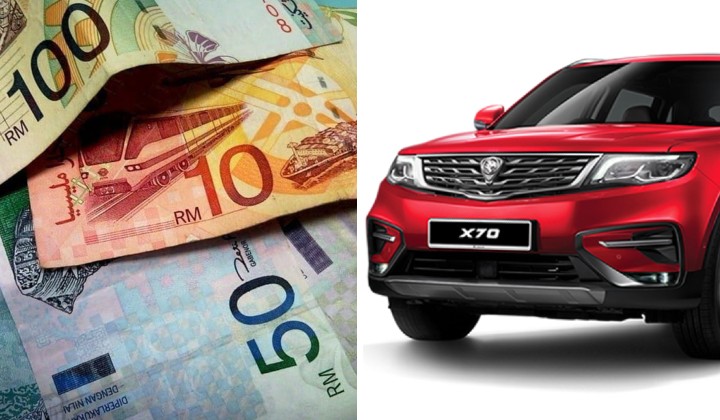Merdeka! Are We? [Opinion]
We need to ask ourselves whether Malaysians are leading a life of complete independence.

By:
Prof. Mohd Nazari Ismail
Faculty of Business and Economics
University of Malaya
Malaysians recently celebrated Merdeka, or Independence Day, on 31 August 2023. A huge parade was held in Putrajaya with all the country’s leaders in attendance. The national flag was hoisted on buildings throughout the country. Small ones were stuck on the roofs of cars, flapping furiously in the wind.
As described by a dictionary, independence is “the state of wanting or being able to do things for yourself and make your own decisions, without help or influence from other people”. In other words, it is a situation of freedom from being controlled by others.
We need to ask ourselves whether Malaysians are leading a life of complete independence.
The opposite of independence is slavery. In the past, one of the ways people became enslaved was their inability to pay back debts. Fortunately, that is now no longer legally possible. However, a person who faces serious debt problems may end up in a situation that is no different from the enslaved people in the past. A person entangled in debt will have no choice but to work day and night to settle his debts. He may not be walking around with physical chains around his neck, but in reality, the debts are chaining his life.
Highly indebted persons can be easily exploited. Hence, there have been many cases where female employees have been subjected to unwanted sexual harassment by their bosses when they find out the women are in debt burdens and desperate financial need. In a way, these unfortunate employees are in a worse situation than enslaved people.
At the national level, a country burdened by debt may also lose its independence. The government will need to consider foreign creditors’ wishes when formulating policies and laws. Numerous examples of countries seemingly may appear to be economically strong but have lost their independence due to debt burdens.
One example of such a country is South Korea, which achieved its independence in 1945 from Japanese colonisation. The country experienced fast economic transformations from an agriculture-based economy to becoming an industrialized nation in the 1980s. However, everything went awry in 1997 when Southeast Asian countries experienced a financial crisis, which led to the collapse of regional markets for Korean exports.
Before the crash, nearly half of South Korea’s exports went to Asia. In 1998, its Asian exports shrank by nearly 30% in value. South Korean currency also experienced a devaluation, and as a result, its export receipts were reduced tremendously.
However, the crucial factor that led to South Korea losing its financial independence was the financial problems faced by South Korean companies, especially the large firms called Chaebols, which grew in size using debts from foreign sources. The decline in the Korean Won resulted in the debts becoming cripplingly expensive. South Korean state-owned banks that borrowed dollars from overseas to lend at negative rates to Korean chaebols were also facing insolvency because of the failure of borrowers to pay their loans.
Without additional funds, the only alternative was to close the factories, let the Chaebols go under, and sack workers. However, the social costs were too frightening to contemplate in a country with a minimal social safety net, a tradition of lifetime employment, and some of the most militant labour unions in the world.
Therefore, to avoid the unthinkable, Korea had to seek help from the IMF through a massive USD 57 billion loan package. However, Korea had to agree to surrender its financial independence and accept the ‘conditionalities’ imposed by the IMF in order to obtain the loan. These ‘conditionalities’ included greater monetary-policy independence for the central bank, a new structure for financial regulation, and, by April 2001, the lifting of the old 50 percent ceiling on foreign ownership of listed Korean companies.
Moreover, Korean banks had to follow international accounting standards, such as setting aside full provisions for loan losses. Foreign firms were also allowed to launch hostile takeovers of Korean firms. In addition, foreign banks and stockbrokers were allowed to open wholly-owned subsidiaries. The government also sold 51 percent of Korea First Bank, one of the two most troubled, to a consortium of American financial firms, Newbridge and GE Capital.
The IMF loan package was disbursed in stages. Therefore, South Korea had to satisfy detailed performance criteria before receiving further loan installments from the IMF. In addition, foreign banks also dictated terms to South Korea before agreeing to give the country extra time to repay its $150 billion in short-term foreign debts. The massive foreign debt it accumulated before the crisis was responsible for substantially eroding Korea’s sovereignty and independence.
Another country that lost its financial independence is Sri Lanka, which obtained independence from British rule in 1948. Nevertheless, just like South Korea, Sri Lanka has had to bow down to dictates from foreign financial institutions in recent years. The latest dictates came from the IMF in March this year in the form of conditionalities imposed on Sri Lanka before granting it a loan of USD3 billion.
The IMF wants Sri Lanka to `implement a credible and coherent strategy to restore the country’s macroeconomic stability’, which is typical advice that the IMF usually gives to any country that asks for its help due to economic and financial crises. The Sri Lankan government has to eliminate or reduce subsidies, increase tax revenue, and increase interest rates to deal with inflation, measures that will cause hardships for ordinary people.
Sri Lanka had no choice but to agree to the terms of the loan because since last year, it has been unable to service its external debt amounting to USD 51 billion. Essentially, Sri Lanka needed more foreign currency, especially in US Dollars, to pay its external debt and the cost of importing essential goods such as food and fuel. As a result, millions of Sri Lankans have suffered from various problems, including food shortages and increasingly frequent power outages. Thus, there were many protests by the people.
Three main elements contributed to Sri Lanka’s problems, namely the corrupt and populist leadership, the debt-based economic system, and the values of the people who want immediate solutions to their problems.
The widespread corruption and nepotism among the ruling group in Sri Lanka were well known. Everyone knows that job and business opportunities are bright among those close to former President Gotabaya Rajapaksa and his brother, former Prime Minister Mahinda Rajapaksa. According to one report, they and several close relatives oversaw government departments and agencies that control nearly 70 percent of Sri Lanka’s budget. Mega infrastructure projects using money borrowed from Chinese banks also opened many opportunities for corrupt practices.
However, the Sri Lankan political elite knew how to maintain their political power by implementing populist policies. For example, in 2019, it decided to reduce taxes. Measures like this are popular with voters and help ensure that people’s government support is not compromised. To ensure continued popularity, they also decided not to reduce government spending even though tax revenue had decreased. This strategy may be effective in gaining short-term support, but it does not take a genius to figure out that the government will face grave financial problems sooner or later.
In conclusion, many countries celebrate their Independence Day even though they are not independent. Many people also do not realise they lead lives of enslavement, with little choice when it comes to work, forced to accept whatever jobs are offered even though the terms of employment are very oppressive. Some even have to endure sexual harassment to ensure they will not lose their jobs because of their dependence on the income from their jobs. The main contributing factor in many cases are debts that hang over their head. Our leaders and intellectuals are responsible for enlightening us all on the nature of modern-day enslavement and how to avoid such a situation so we can truly celebrate our Independence Day.

Prof. Mohd Nazari Ismail (Phd.) is a professor at the Faculty of Business and Economics, University of Malaya.
If you’d like to have your opinion shared on TRP, please send it via email at editorial@therakyatpost.com with the title “OPINION:” or through social media on TRP’s Facebook, Twitter, and Instagram.





